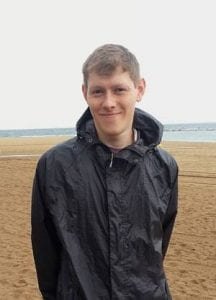Matt Jacobs reads ‘Stephen Lawrence isn’t on the National Curriculum’ by Josephine Corcoran in remembrance of Stephen Lawrence, 25 years on.
When asked about the poem, Matt Jacobs said:
It is now 25 years since the murder of Stephen Lawrence and the subsequent Macpherson Enquiry into the police investigation that revealed the extent of institutional racism that infused the workings of the Metropolitan Police Force. Since that time, it seems that little has changed. Just last year, Avon and Somerset Constabulary and Bristol City Council accepted the findings of the IPCC report on the murder of Iranian refugee, Bijan Ebrahimi, that said officers showed “hallmarks” of racial bias against Mr Ebrahimi. A further independent report commissioned by Safer Bristol revealed Avon and Somerset Police and Bristol City Council were responsible for a “collective failure” and that “institutional racism” was evident in the case; institutional racism that ultimately led to the death of Mr Ebrihimi.
These issues have long been known, felt, and lived by People of Colour in Britain. Yet, is seems that we White British people are unable to accept responsibility for our part in this. Yes, we may express outrage, shock, and words of apparent support for the cause of racial equality, but what do we actually do about addressing it? This poem speaks to this issue by highlighting the institutional neglect in not teaching our children about the murder of Stephen Lawrence and by emphasising our responsibility as individuals, as parents, to teach our children that Black Lives Matter.
Matt Jacobs is a PhD Researcher at the University of Bristol. Matt is researching how ‘Whiteness’, ‘masculinity’ and ‘middle-classness’ combine in the identities of White British, middle-class men, and how they perform these identities in post-Brexit/Trump/#MeToo/Black Lives Matter Bristol.
Further information
This reading is part of the Commemorative Poem Initiative run by the Bristol Poetry Institute.



